Transcripts
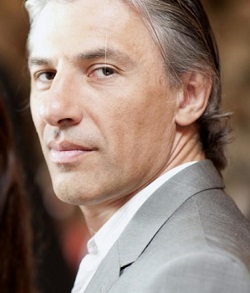 Erik: Joining me now is HonTe Investments founder and fund manager, Alex Gurevich. Alex, I am really looking forward to this interview with you specifically because as our regular listeners know, and I know you're a regular listener yourself there's three macro questions that I number one am convinced you have to answer in order to understand where we are at this particular moment in markets. And number two, which I personally have no clue what the answer is and that's why I rely on smarter people than myself such as you.
Erik: Joining me now is HonTe Investments founder and fund manager, Alex Gurevich. Alex, I am really looking forward to this interview with you specifically because as our regular listeners know, and I know you're a regular listener yourself there's three macro questions that I number one am convinced you have to answer in order to understand where we are at this particular moment in markets. And number two, which I personally have no clue what the answer is and that's why I rely on smarter people than myself such as you.
So let's just recap those; are regular listeners already know these. The first is here we are at almost zero interest rates, we've been below 50 basis points, we're back up to wherever we are this week 60-75, we've been close enough to zero that if you believe there is a zero bound on the US 10 year, then by definition, the 38 year bond bull market has to be ending. So is it ending? Or is it true that negative rates are possible? And if so, how negative? Are they possible?
Question number two, are we on the cusp of a secular shift from disinflation toward inflation? And if so, could it be as big as the inflation that began in the late 1960s? And particularly if that is true, is that something that really starts to run away in three to six months or three to six years? How long does it take for that inflation shift to happen if it's happening?
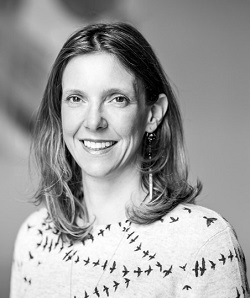 Erik: Joining me now is JDI research founder Juliette Declercq. Juliette has prepared a slide deck to accompany today's interview, registered users will find the download link in your research roundup email. If you're not yet registered at macrovoices.com, just go to our homepage, look for the red button that says looking for the downloads right above Juliet's picture. Juliet, it’s great to have you back on Macro Voices, it's been too long. Now, I know we usually talk about Europe and some of the things that you specialize in but I also know from reading some of your work that you're actually focused primarily right now on the US presidential campaign. So, tell us a little bit about what your prognostications are, what do you say? It's great to have an outsider's perspective on what we can expect in this election.
Erik: Joining me now is JDI research founder Juliette Declercq. Juliette has prepared a slide deck to accompany today's interview, registered users will find the download link in your research roundup email. If you're not yet registered at macrovoices.com, just go to our homepage, look for the red button that says looking for the downloads right above Juliet's picture. Juliet, it’s great to have you back on Macro Voices, it's been too long. Now, I know we usually talk about Europe and some of the things that you specialize in but I also know from reading some of your work that you're actually focused primarily right now on the US presidential campaign. So, tell us a little bit about what your prognostications are, what do you say? It's great to have an outsider's perspective on what we can expect in this election.
Juliette: With the Covid crisis fading away in the United States, I was not surprised to see Trump catching up to Biden. After all the ace up his sleeve is the economy. Of course, its not my personal opinion because I think that short-termism and obsession for rising equities and financialization will cost the US economy greatly in the long run, but I have no vote in this contest.
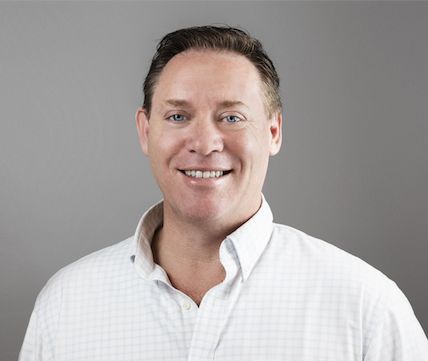 Erik: Joining me now is Mike Green, Chief Strategist and portfolio manager for Logica Funds. Mike, it's great to get you on the show this one is overdue, you've really gotten a lot of popularity lately since you came out from hiding behind the compliance wall that you used to hide behind.
Erik: Joining me now is Mike Green, Chief Strategist and portfolio manager for Logica Funds. Mike, it's great to get you on the show this one is overdue, you've really gotten a lot of popularity lately since you came out from hiding behind the compliance wall that you used to hide behind.
Let's start with a topic that I know you've touched on recently on another podcast you did with our good friends Grant Williams and Bill Fleckenstein. They did a series called the Stock Market End Game or I guess it was just called the End Game and it was fascinating to me to listen to because I used to say the exact same thing almost that Bill said in that series, which is, hey, look, this whole stock market rally since 2009 it's been artificially propelled by monetary policy, not by economic fundamentals. It's artificial and therefore it has to end badly someday, there has to be eventually a crash of the stock market or something because there's no free lunch in finance, that's just not how it works. I've changed my view, I don't really think that's true anymore, I think that it has to end badly but it's not necessarily nominal down in the stock market.
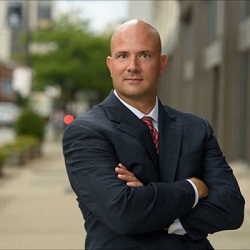 Erik: Joining me now is Forest for The Trees founder, Luke Gromen. Luke, as our regular listeners know, I've been asking all of our featured guests the same question recently, which is ‘boy weakness in the US dollar relative to other currencies caught some of us off guard.’ You're the guy who has been saying for years that the US dollar was headed for not just a little move down, but eventually a secular decline, a loss of reserve currency status, a sunsetting if you will of the dollars hegemony over the global financial system.
Erik: Joining me now is Forest for The Trees founder, Luke Gromen. Luke, as our regular listeners know, I've been asking all of our featured guests the same question recently, which is ‘boy weakness in the US dollar relative to other currencies caught some of us off guard.’ You're the guy who has been saying for years that the US dollar was headed for not just a little move down, but eventually a secular decline, a loss of reserve currency status, a sunsetting if you will of the dollars hegemony over the global financial system.
And what I've been asking all of our other guests is okay, with this weakness in the dollar is this just a little move down? Or are we seeing the beginning of that Luke Gromen moment where you're proven right? And we've had a number of different views.
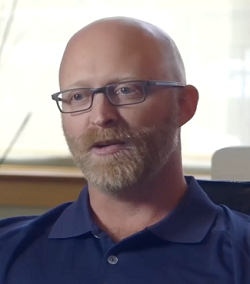 Erik: Joining me now is former hedge fund manager turned Felder Report publisher Jesse Felder. Jesse, it's great to have you back on the program. On the day that we are speaking, the global pandemic appears in some ways to be worsening across Europe with case counts on the rise, although we don't yet have death counts on the rise across Europe, a lot of question marks as to whether that's coming. There are a number of experts that are warning that as we get into the fall colder weather in the Northern Hemisphere, we could be looking at a vicious second wave of the pandemic. Stocks, meanwhile, rallied to new all-time highs on the news, Jesse Felder, please explain.
Erik: Joining me now is former hedge fund manager turned Felder Report publisher Jesse Felder. Jesse, it's great to have you back on the program. On the day that we are speaking, the global pandemic appears in some ways to be worsening across Europe with case counts on the rise, although we don't yet have death counts on the rise across Europe, a lot of question marks as to whether that's coming. There are a number of experts that are warning that as we get into the fall colder weather in the Northern Hemisphere, we could be looking at a vicious second wave of the pandemic. Stocks, meanwhile, rallied to new all-time highs on the news, Jesse Felder, please explain.
Jesse: Well, it's absolutely astounding. I mean, you know, we talked I think last time you had me on the show, Eric, was February right before the decline began. And you and I were both were very bearish thought that that initial 10% decline was going to continue. And you know, I think even at the bottom in March, and a few weeks afterwards, nobody would have guessed that we would see the fastest and a lot of what people are calling ‘the shortest bear market in history’, which I tend to disagree.
MACRO VOICES is presented for informational and entertainment purposes only. The information presented in MACRO VOICES should NOT be construed as investment advice. Always consult a licensed investment professional before making important investment decisions. The opinions expressed on MACRO VOICES are those of the participants. MACRO VOICES, its producers, and hosts Erik Townsend and Patrick Ceresna shall NOT be liable for losses resulting from investment decisions based on information or viewpoints presented on MACRO VOICES.
